PHILATELY IN TURKEY
(See also: Atatürk on Stamps and Country Series)
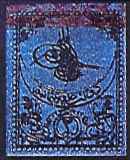 Postage
stamps are one of the most important ways of broadcasting a countrys image. Carried by
letters from their country of issue to the four corners of the world, they inform the
recipient at a glance about a countrys unit of currency, its festivals, flora and
fauna, national costume, historic buildings, and indeed anything else that it cares to
illustrate. The flag on a stamp from the Philippines or birds on stamps from the Sultanate
of Brunei tell us about countries we night otherwise know nothing about. Postage
stamps are one of the most important ways of broadcasting a countrys image. Carried by
letters from their country of issue to the four corners of the world, they inform the
recipient at a glance about a countrys unit of currency, its festivals, flora and
fauna, national costume, historic buildings, and indeed anything else that it cares to
illustrate. The flag on a stamp from the Philippines or birds on stamps from the Sultanate
of Brunei tell us about countries we night otherwise know nothing about.
When Sir Rowland Hill issued the first postage stamp in England in
1840 it marked the end of a system going back to the middle ages whereby the recipient had
to pay for postage according to weight and dis 666recipient had to pay for postage
according to weight and distance carried. 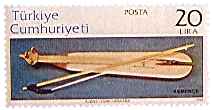 Postage
stamps quickly spread throughout the world, and over the intervening hundred and fifty
years millions of stamps have been issued. The fascination of these tiny informative
pieces of paper soon attracted collectors, and the science of philately was born. As
countries competed with one another to produce attractive and interesting stamps, more and
more people of all ages began to collect them. Soon philately societies were being formed
and next came an international federation enabling philatelists from different countries
to share their collections and knowledge at international exhibitions. Postage
stamps quickly spread throughout the world, and over the intervening hundred and fifty
years millions of stamps have been issued. The fascination of these tiny informative
pieces of paper soon attracted collectors, and the science of philately was born. As
countries competed with one another to produce attractive and interesting stamps, more and
more people of all ages began to collect them. Soon philately societies were being formed
and next came an international federation enabling philatelists from different countries
to share their collections and knowledge at international exhibitions.
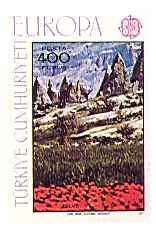 The first philately club was founded in
İstanbul in 1948 and today there are scores of clubs in Ankara, İzmir, Edirne and many
other cities. Particularly in recent years Turkish philatelists have been doing extremely
well in international exhibitions. The first Turkish postage stamp was issued in 1863
under Minister of Posts Agah Efendi, who was a journalist by profession.
This rectangular stamp was unperforated and bore the cipher of Sultan Abdülaziz.
The first illustrated Turkish stamp depicted Selimiye in Edirne, and dates from 1913.
During the War of Independence (1919-1923) the nationalist government formed by Atatürk
in Ankara issued its own stamps in addition to those issued in İstanbul by the Ottoman
government. On 1 January 1924 the first stamp of the Turkish Republic was issued. It bore
the portrait of Mustafa Kemal Atatürk and commemorated the Lausanne Treaty. The first philately club was founded in
İstanbul in 1948 and today there are scores of clubs in Ankara, İzmir, Edirne and many
other cities. Particularly in recent years Turkish philatelists have been doing extremely
well in international exhibitions. The first Turkish postage stamp was issued in 1863
under Minister of Posts Agah Efendi, who was a journalist by profession.
This rectangular stamp was unperforated and bore the cipher of Sultan Abdülaziz.
The first illustrated Turkish stamp depicted Selimiye in Edirne, and dates from 1913.
During the War of Independence (1919-1923) the nationalist government formed by Atatürk
in Ankara issued its own stamps in addition to those issued in İstanbul by the Ottoman
government. On 1 January 1924 the first stamp of the Turkish Republic was issued. It bore
the portrait of Mustafa Kemal Atatürk and commemorated the Lausanne Treaty.
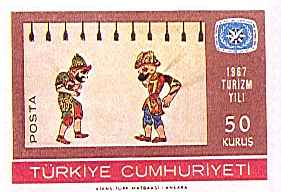 Until thirty years ago Turkish stamps were
largely printed in Switzerland, Austria, Britain and other European countries, but since
then Turkey has not only printed its own stamps, but also meets orders for stamps from
other countries. Altogether Turkey has issued over three thousand stamps since 1863. Until thirty years ago Turkish stamps were
largely printed in Switzerland, Austria, Britain and other European countries, but since
then Turkey has not only printed its own stamps, but also meets orders for stamps from
other countries. Altogether Turkey has issued over three thousand stamps since 1863.
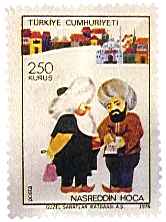 Thematic stamp collection has increased
significantly over recent years. Collectors focus on a particular subject such as sport,
plants, animals, architecture, archeology, music, theatre, medicine and so on, and the
Turkish Post Office has responded to this growing demand around the world by issuing
attractive thematic series. The subject matter is deverse, ranging from portraits of
artists, writers, scientists and statesmen to native flora and fauna, historical buildings
and monuments, sport and important events. Since 1958 Turkey has also issued the European
CEPT series issued by the European countries. Thematic stamp collection has increased
significantly over recent years. Collectors focus on a particular subject such as sport,
plants, animals, architecture, archeology, music, theatre, medicine and so on, and the
Turkish Post Office has responded to this growing demand around the world by issuing
attractive thematic series. The subject matter is deverse, ranging from portraits of
artists, writers, scientists and statesmen to native flora and fauna, historical buildings
and monuments, sport and important events. Since 1958 Turkey has also issued the European
CEPT series issued by the European countries.
In 1963 and 1996 Turkey held major international philately exhibitions, attended by
leading philatelists from all over the world. Turkish philatelists regularly sit on juries
at stamp exhibitions. There is a Postal Museum in Ankara run by the Turkish PTT with a
large collection of stamps on exhibit. The museum organizes programs of events aimed
particularly at encouraging young people to collect stamps.
- Source:
- By Turgay Tuna
SKYLIFE 12/97
- See also:
- Atatürk on Stamps
|